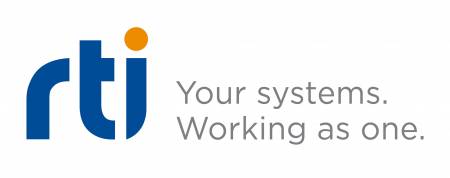
2:00 pm to 3:00 pm
Virtual FRC Seminar:
Seminar recording: https://cmu.zoom.us/rec/share/x84qF7_q8TlIcpHoyG_DRa58O6i8aaa8hCAW_fEPxEkBGjBVPyzW_lK0YW30RfJ3?startTime=1598551489000
Passcode: qu6)ePH9
Abstract:
Next-generation robotics will need more than the current ROS code in order to comply with the interoperability, security and scalability requirements for commercial deployments. This session will provide a technical overview of ROS, ROS2 and the Data Distribution Service™ (DDS) protocol for data connectivity in safety-critical cyber-physical systems. This session is intended for developers, engineers and system architects of distributed autonomous systems.
Bill Drozd’s Team Explorer is a prime example of the systems where RTI Connext adds value:
“Every day we expect more from the robots we make. For Team Explorer, this meant increasing the size of our robot team from three to seven, adding the capability for remote drone launches from ground vehicles, all while remotely monitoring video streams from up to a dozen cameras (in less than 6 months). The lack of subterranean infrastructure means any software solution has to be tolerant to dropped packets, high pings, frequent disconnections and needs certain data to be resent automatically until reception is guaranteed. We chose RTI because we needed to go beyond what was possible with ROS-1 while still relying on a largely ROS-1 code base. The DDS messaging standard means that we could be certain that future versions of our software would integrate easily with any of the many existing commercial and government clients that rely on it, and that the switch to ROS2 is always an option. Going far beyond simply providing this software we depend on for SubT, the staff at RTI have at every opportunity worked hard to help us overcome our numerous and daunting technical challenges, and we look forward to giving CMU the opportunity to learn from them.” – Bill Drozd, Senior Research Programmer, National Robotics Engineering Center, Carnegie Mellon University
The focus will be on how the data-centric approach of DDS creates a scalable architecture that can address:
-
Real-time performance, determinism, and production-level safety and security
-
Multi-robot systems (swarms/platoons); inconsistent networks; and operation on constrained platforms
-
Modularity to manage development cost/risk, complexity and enable scalability
-
Interoperability, ease of integration and common interfaces
Speaker Bio:
Ross Gilson is a Senior Field Applications Engineer with Real-Time Innovations (RTI), the leading DDS provider, with over 1,500 commercial projects in robotics, autonomous systems, connected healthcare, aerospace and other complex distributed applications. The company’s RTI Connext® DDS product enables intelligent architecture by sharing information in real time, making large applications work together as one.
